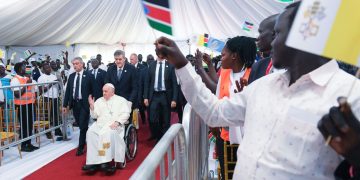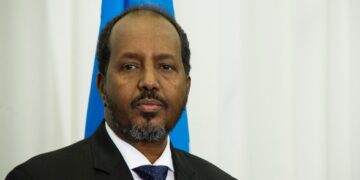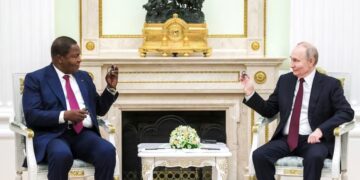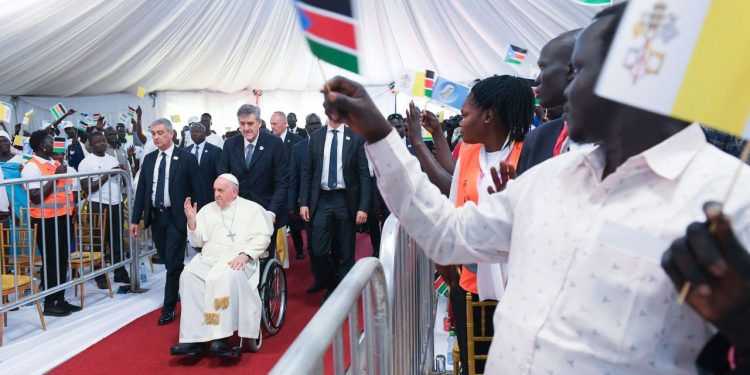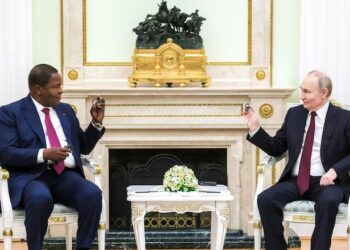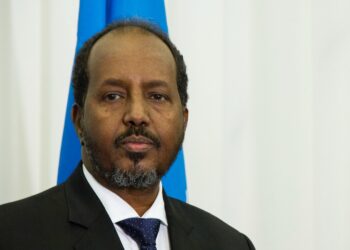By Ebi Kesiena
In an open air mass on Sunday, Pope Francis appealed to people to lay down their weapons of hatred.
The Pope spoke on the final day of his pilgrimage to South Sudan, a country blighted by violence and poverty.
Large crowds of ecstatic worshippers streamed into the John Garang Mausoleum in the capital Juba to see the 86-year-old pontiff, who has made peace and reconciliation the theme of his three-day trip to the world’s newest nation.
In his homily, Pope Francis said ‘‘Let us lay down the weapons of hatred and revenge, Let us overcome the dislikes and aversions that over time have become chronic and risk pitting tribes and ethnic groups against one another,”
People waved national flags and sang “Welcome holy father to South Sudan” as the Argentine pontiff moved through the crowds in his popemobile before delivering the mass to an over 70,000 audience.
Francis is on the first papal visit to the largely Christian country since it achieved independence from mainly Muslim Sudan in 2011 and plunged into a civil war that killed nearly 400,000 people.
Despite a peace deal signed in 2018 between President Salva Kiir and his Deputy Riek Machar, many of its conditions remain unmet and violence continues to roil the country, driving people from their homes into displacement camps.
Hope For Change
The wheelchair-bound pontiff, who himself tried to broker peace during the civil war, has received a rapturous welcome throughout his visit.
“I came to see the pope bring change to the country. For many years we’ve been at war, but we need peace. We want the pope to pray for us,” said James Agiu, 24.
He was among the many who stayed overnight to join the mass at the John Garang mausoleum built in honour of South Sudan’s rebel hero who was killed in a helicopter crash in 2005.
“I arrived last night. I’ve been waiting here. All night, sitting and waiting,” Agiu said, laughing. “After he goes, I sleep.”
On Saturday, Pope Francis met victims of the civil war, who were brought to Juba from various camps, and urged the government to resume the peace process and restore “dignity” to the millions affected by conflict.
With 2.2 million internally displaced people (IDPs), and another two million outside the country, South Sudan is witness to the worst refugee crisis in Africa.
